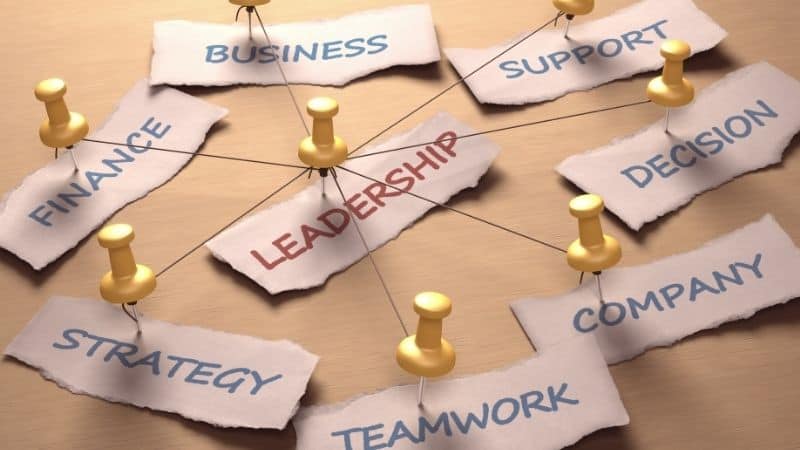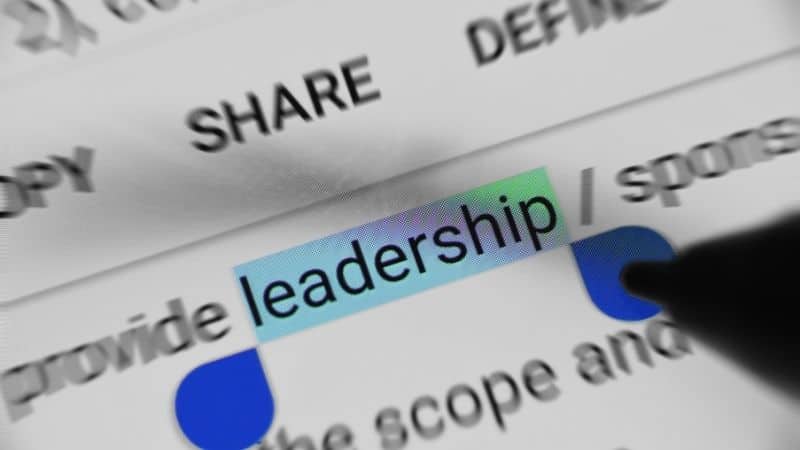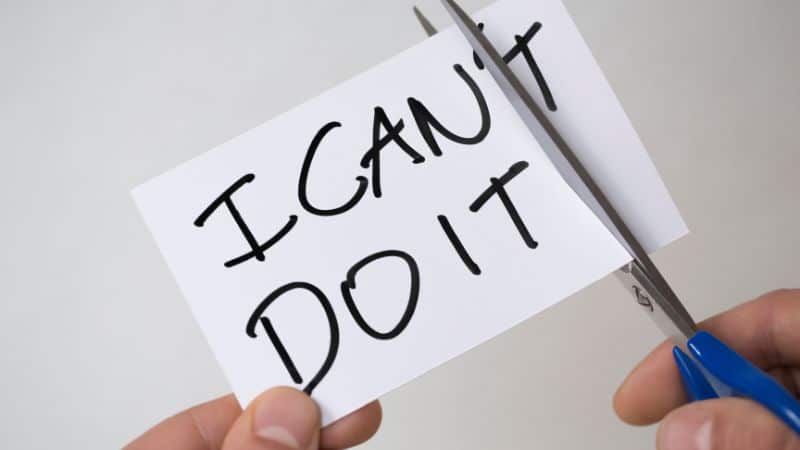An effective leader possesses characteristics that help inspire people to make change happen. Leadership learning is simple and you can become an effective one by optimizing the characteristics you already possess.
Understand the exemplary characteristics of effective leaders you intend to emulate.
You will learn seven of the key characteristics of effective leadership in this article.
I also wrote about the qualities of good leaders. You can explore the next. Go later to Qualities of Good Leaders.
The Problem of Poor Leadership
Jov believes that she will soon get fired for being ineffective. Three months ago, she was promoted to a supervisory job. She was happy about it because the promotion added 3000 pesos to her monthly salary.
But since day 1 as a supervisor, she has been struggling with imposter syndrome. It seemed to her that everyone, especially her subordinates, questioned her ability.
“My subordinates think they know better, and they ignore my instructions.”
She’s very frustrated and angry.
She wants to help her team meet their monthly goals because since she started, they were only hitting 70%. The previous supervisor has almost the same performance level, and she’s afraid she’ll be fired soon if the numbers will not change.
Jov is young, ambitious, and intelligent too. She only needs to develop supervisory skills and get an opportunity to learn from good mentors.
If you are like Jov, or even someone twice her age, I want to show you simple habits you can start doing to become an effective leader. Habits are patterns of behavior. A habit is your default action in a situation.
When you need help in training managers and supervisors, go to the leadership training page. You will find 30 leadership workshops.

What is an effective leader?
An effective leader is a leader who helps people achieve great results using minimum resources. Effective leaders clarify their goals, find proven and easy ways, and get competent people to do the job. Effective leaders possess the right competencies and drive to achieve high performance.
If you really want to become an effective leader, you will practice leadership habits that help achieve high-impact goals.
Habits is kagawian in Tagalog. It is related to kaugalian (character). Our habits build our character.
You can read leadership books, watch Youtube videos, enroll in online courses, volunteer to help causes, and take the initiative at work. But you need to want it first.

Characteristics of Effective Leaders
Leadership characteristics refer to the quality or traits that leaders possess. We shall examine the characteristics that make a leader effective. An effective leader, of course, may demonstrate excellent skills and winning attitudes.
If you are working to become an effective leader, these leadership characteristics can help you lead well. Organizations will be looking for you and you’ll be irresistible.
Companies search for value-added leaders.
1. Life-long Learning
Lifelong learning is the ongoing and voluntary pursuit of knowledge. Effective leaders are lifelong learners. But they don’t seek knowledge for knowledge’s sake. They look for solutions that can help people achieve their goals.
You’ll never know everything there is to know about your job. Make a point to learn something new every day.
It is said that one has to invest 10,000 hours in his craft to become an expert.
If this belief is true, then you only need more than two hours and a half of daily deliberate practice to be an expert in ten years.
If it took you 16 years before you achieved your bachelor’s degree. What if you have invested at least three hours in deliberate training?
Another ten years invested in your craft is not that long given the number of years most of us spent to become non-expert.
You can be a student of leadership.
Get yourself educated every day. When you do, you will amaze yourself because you will learn many things you have not imagined before. Learning also gets easier.
How to be a lifelong learner? I recommend three action steps.
First, identify one or two meta-skills you need to master. Meta skills are those skills that make it easy for you to learn all other skills. For example, one of those meta-skills is learning how to learn.
Second, make it a habit to find purpose in whatever learning opportunities you will have. For example, if you are attending a seminar, identify the challenges or problems you need to solve. Every activity serves a purpose.
Third, be always open to possibilities. Explore ways that can help you accelerate, maximize, or multiply results.
Being a lifelong learner does not mean having doctorate degrees or reading every book you can find. It simply means that you will continue to pursue personal growth in all your endeavors.

2. Boundary-Pushing
Boundary-pushing means always challenging oneself to push one’s limit. You won’t really know what you can do unless you try. Good leaders are never contented with good enough. They want to know how to make something better.
The typical advice is for you to step out of your comfort zone. It is as if the comfort zone is a physical space. In truth, the comfort zone is where you feel safe and secure. You can do much in your comfort zone fearlessly.
For this reason, I believe that what we ought to do is stretch our comfort zone. Every day, we will push our boundaries so it becomes bigger than what it is yesterday.
I do understand that there are times when we really have to step out of our comfort zone. But those times seldom happen. On ordinary days, all we need is to stretch out of our comfort zone.
I have simple recommendations.
First, consider those things you wanted to do but have not done until now. Pick one and do it.
Are you afraid to speak in public? Join Toastmasters or join my Speaker’s Circles. Or enroll in a theater class.
Do you want to do scuba diving? Google the next class near you.
Do you want to volunteer your time in educating street kids? Find organizations that are already doing that. Join them.
To become an effective leader, it helps if you stretch yourself each day.
These examples are not you going out of your comfort zone. You are already leading people.
You are enlarging, stretching your comfort zone. By stretching yourself, you are not jumping off a cliff without a harness to support you. Though you’ll be doing something for the first time, you know that you’ll be safe 99 percent of the time.
Trust me when I say that the comfort zone is not a place. Comfort zones exist only in our minds. Every time we stretch ourselves, we gain confidence, and we learn better.
Note: I will resume my Speaker’s Circle project in 2023. Send me an email if you are interested to join.

3. Compassionate & Responsive
Compassionate leaders have empathy. They consider the situation of their employees and their customers. Because they are empathetic, they are also responsive.
Compassionate and responsive leaders are effective because they go the extra mile to help people. They are not transactional leaders.
How can you be an effective leader, then?
See what challenges your clients and your boss face, and learn from them. Use your learning as a basis for improving your responsiveness to their needs.
I call this observation. And observation made me learn twice about everything.
Do you know who trains a Yakult Lady how to sell effectively? Her supervisor sells with her during the first few days. That supervisor knows how difficult (and easy) it is to sell a bottle of Yakult.
I know of a sales VP who visits the homes of his salespeople. It is because he wants to know the kind of life they lead.
A friend told me that she wants me to teach her employees to have a sense of ownership. I asked her if she visited their houses. Whatever they do as owners of their own houses is what they’re likely going to do if they think like owners.
An effective leader finds time to wear the shoes of people. This is not only for academic understanding. No. The leader must know this so he’ll know how fast or slow everyone can walk.
What can you do then?
Imagine what will make your boss and clients happy. You become an effective leader when you deliver what people expect from you. Becoming a leader does not happen when you were given a title. It happens when you get your promise done.
If you are a supervisor, you become a leader who makes your direct reports happy. No, you don’t have to be an entertainer. But you have to deliver a promise, even if not expressed.
Your people want to achieve their goals. They want to do it easily. They want to enjoy a work-life balance. If you can give these to them and some more, then you are an effective leader.

4. Innovative
An innovative leader looks for new ways of doing things to achieve better products faster for a cheaper cost. They are creative, and they convert their creativity into something that adds value.
How can you be an innovative leader?
Change your way of thinking and believing so you can change the way you do things.
Look at your work from a new perspective. There will be people out there who will make you hate work.
Some of them will say that the best thing in life is to go easy, build your downlines, and earn your passive income anywhere. Yes, I got these ideas from MLM recruiters.
I honestly believe that some of them are really good at what they do. They are great recruiters. They earn millions too. I also believe they are less than 1 percent.
Do not allow these people to poison your mind. They do not know what work means to you. They do not know what entrepreneurship means. They do not know that network marketing takes hard work. Those who succeeded in that business were never passive. They worked more than eight hours a day.
Work is an opportunity to be of service to others. Work is an opportunity to make a difference in people’s lives. This is the very reason why I encourage you to work for the best.
And yes, entrepreneurs work harder than anyone else. And those who know how to lead people to have greater sustainable success.
5. Flexible & Adaptive
An adaptive leader is someone who can make quick decisions in uncertain situations. This leader is flexible. Another term used to refer to this kind of leader is an agile leader. Adaptive leaders are effective because they thrive even in a crisis.
How can you be flexible and adaptive?
Refuse to let your mind close itself to new ideas and ways of doing business. Do not tell me that you are 65 years old and your life is done. Life is never done until you are gone.
You are not done till you are dust.
You are not too old to listen – really listen — to what others say and learn from their experience.
I have learned to never overestimate my knowledge and underestimate others too. I think every leader must be flexible and must be elastic so they learn more.
I know people in government service who are just waiting for their retirement even though they are still in their 30s. Being in government is the most stable job.
But that post also gives one opportunity to make a difference while getting a good salary. A government employee can become an effective leader by going beyond the ordinary.

6. Opportunity-Maker
An opportunity-maker is someone who uses whatever is available to get things done. They take inventory of their assets and skills so they can use them to add or multiply value.
Surely, an opportunity maker is an effective leader. How can you be an opportunity-maker then?
You should try new things. That’s how you grow. Complaining will not produce anything. Waiting will not make opportunities come.
Expect opportunities. And when you cannot find one, make one. You will become an effective leader when you have eyes for opportunities.
Find opportunities to teach, motivate, and inspire your people. You can start by catching them doing something good. Highlight these good things.
If you understand how your company makes money, explore opportunities where you can help. If this is not your cup of tea, stretch yourself. Become more business aware. Develop business acumen. You will discover that what successful people know is not as mysterious as they appear to be.
If you are new, take every opportunity as a challenge to prove yourself. Take each challenge as an opportunity to learn.
7. Entrepreneurial
An effective leader is entrepreneurial. An entrepreneurial person is someone who possesses business acumen. She knows the ins and outs of her industry. She knows how to increase revenue, create more customers, and find products and services the market needs.
If the purpose of your business is to earn money, who else can be more effective than an entrepreneurial leader?
You can be entrepreneurial too.
This is one way of making opportunities. Doing so will make you learn more skills, cultivate your strengths, spend time in your co-workers’ shoes, and break out of the old way of thinking. And by the way, this will also make you more promotable.
You don’t have to wait for someone to tap you. If you know that you can be of help, tap yourself. Sell the idea that you can do something for your organization.
Let me share with you this story.
When I was a new teacher in this school, I learned that they’d been joining interschool writing contests. They picked the top 3 students from each year level and had someone, an expensive professor, train these students. But they have not won a single contest.
I told the school director that I can get this job done. They don’t have to pay me. (Not yet!) I am sure they’ll pay me later when they see good results.
To cut a long story short, they realized the remarkable improvement of the school paper. It won a number of awards. And the staff won individual awards in inter-school competitions.
I know that something can be done and I took the risks.
Assess Yourself
If you are thinking of how to become an effective leader, I recommend that you use the assessment questions below.
For each of the following statements, rate yourself on a scale of 1 to 5, where 1 means “strongly disagree” and 5 means “strongly agree”.
Lifelong-learning:
- I actively seek new knowledge and skills related to my role as a leader.
- I regularly participate in learning activities (training, webinars, workshops, etc.) to enhance my leadership.
- I encourage learning from mistakes and see them as opportunities for growth.
- I am always open to feedback and suggestions for my professional development.
- I consider myself a role model for continuous learning in my organization.
Boundary pushing:
- I often challenge the status quo to foster improvements in my organization.
- I am comfortable with taking calculated risks when they can lead to significant advancements.
- I actively encourage and support innovative thinking within my team.
- I am not afraid to make tough decisions or tackle complex problems.
- I regularly set ambitious goals for myself and my team, pushing beyond our comfort zones.
Compassionate and responsive:
- I genuinely care about the well-being of my team members.
- I take the time to listen to my team’s concerns and act upon them.
- I strive to maintain open and effective communication channels with my team.
- I am willing to adjust my plans and strategies based on my team’s feedback.
- I can empathize with my team members and offer support when they face challenges.
Innovative:
- I am constantly looking for new and creative ways to solve problems.
- I encourage and reward creativity and innovation within my team.
- I am open to adopting new technologies and practices that can improve our work.
- I always consider multiple perspectives and approaches before making decisions.
- I am able to quickly adapt and pivot when an innovative idea doesn’t work as planned.
Flexible and adaptive:
- I can quickly adjust my plans and strategies when circumstances change.
- I am comfortable dealing with uncertainty and unpredictability in my work.
- I am open to new ideas and can change my viewpoint based on new information.
- I can adapt my leadership style to different individuals and situations.
- I see change as an opportunity rather than a threat.
Opportunity maker:
- I actively seek out opportunities for my team and organization.
- I enable my team to seize new opportunities by providing the necessary support and resources.
- I always look for the silver lining or potential advantages in challenging situations.
- I am skilled at networking and building relationships that can open up new opportunities.
- I create an environment that encourages my team to take initiative and seize opportunities.
Entrepreneurial:
- I am always on the lookout for ways to improve our products, services, or processes.
- I am comfortable with taking financial risks when they have the potential for significant rewards.
- I foster a culture of entrepreneurship within my team.
- I have a strategic mindset and always think about the future growth of the organization.
- I can balance my desire for innovation with the practical needs of the organization.
Skills Vs Habits
Both skills and habits are learned behavior. A skill is an ability or talent one needs to perform a task. On the other hand, a habit is a behavior that you learn through practice. Some skills become habits, but not all habits are skills. Some habits are bad for performance.
As I have mentioned above, I recommend you read the 17 Qualities of Good Leaders.
Start now.
I just shared seven characteristics of an effective leader. Go back to each one. Pick one that you can do this week. Pick one that you can do today.
The secret to becoming an effective leader is not knowing what to do. It is in doing what you know.
This day is beautiful. Make it wonderful.`

Which of these leadership habits do you want to start first? Send me an email if you have questions. Send your questions or feedback to learn@jefmenguin.com
Frequently Asked Questions
Articles
I recommend that you explore the following posts. These can help you become an effective leader.
If your team is stuck in meetings, misalignment, or slow decisions…
Let’s design one shift they can use immediately.
→ Shift Experiences


